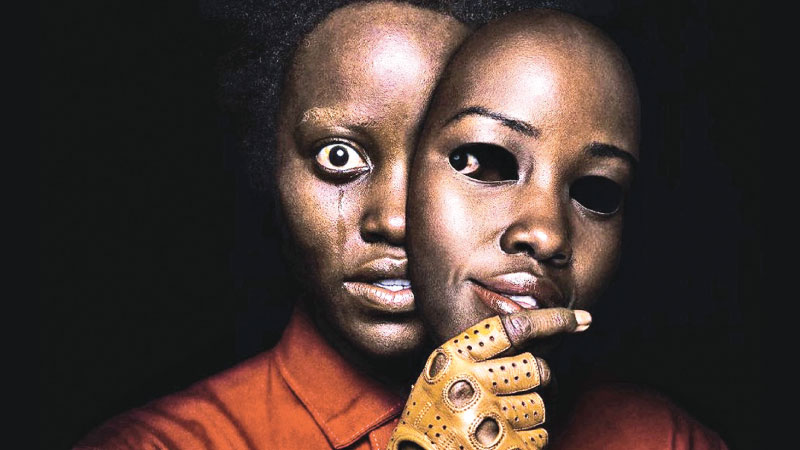“Therefore thus saith the Lord, Behold, I will bring evil upon them, which they shall not be able to escape; and though they shall cry unto me, I will not hearken unto them."
- Jeremiah 11:11
Thus we come to realise that in cheering Adelaide to destroy Red, we were rooting to preserve an unequal system, in which the upper classes are saved while the rest are lost. In 'Us', we see inequality taken to its logical extreme.
‘Us’ centers on the Wilsons, a seemingly normal middle-class family of four on vacation at their summer home near the California coast. But like any good Twilight Zone episode, there’s a sense that not everything is as picturesque as the beautiful beaches and lakeside retreats might lead you to believe. Peele effectively creates this ominous tone first and foremost through strong character development, especially with Lupita Nyong’o (Black Panther). Nyong’o portrays Adelaide, the matriarch of the family, who is haunted by a traumatic experience she had as a young girl while on a similar vacation with her mom and dad. The use of flashbacks to Adelaide’s childhood provides valuable insight into why her character seems so sad and often paranoid about the world around her. When darkness falls, the Wilsons discover the silhouette of four figures holding hands as they stand in the driveway.
Of course, the extensive mirroring is most terrifying when the family members must look into the eyes of their actual doppelgangers and see themselves.
What first struck me in that this film is that the direction was heading towards an odd line during the first encounter. The doppelgangers have broken into the lake house of the Wilsons and have everyone seated for good old story time; but when Adelaide's husband Gabe asks the Tethered, "What are you people?", Red (The doppelganger of Adelaide) answers, "We're Americans". Yet there are two separate Americans in the film, and only one gets to see the sky. The other half gets monstrous recreations of natural life.
One of the trickier aspects of the movie to figure out is the serendipitous occurrence of the number 11. One of the most notable appearances is on the vagrant’s sign from the beginning of the movie, which references the Bible verse Jeremiah 11: 11, these fire and brimstone words sound apt for what we witness; this is getting at the theme of the sins of our ancestors. The final moment of young Jason becoming aware of his parents' sins represents the way that all children eventually have to reckon with their ancestors' legacy, and if they do lead a comfortable life with the truth that they have benefited from an unequal system. Jeremiah 11:10's mention of worshipping other gods can speak to the consumerism (the worshipping of luxury and materialism) that seems to be punished here.
‘Us’ makes the case that by forgetting about those in a worse-off position than ourselves, we become the monsters. The symmetry of the number 11 as a visual that reminds us how much we share in common, but it’s also an example of Jordan Peele suspending disbelief from a filmmaking perspective in order to reinforce the idea that by willfully ignoring “the Other”, we’re missing out on what makes a community strong in the first place. Where will that get us? Judging by the dark omen of Jeremiah 11:11, its nowhere good.
The theme of America and the American dream (Us), play an oddly important role throughout all of the events of the film. Some of this can be classified as representing the duality of the American dream. Darker visions of this duality crop up in other visual references. The daughter, Zora, takes on some of the underground people with the whitest weapon of all, a golf putter, while Gabe employs the 'As American As Apple Pie' baseball bat.



Add new comment